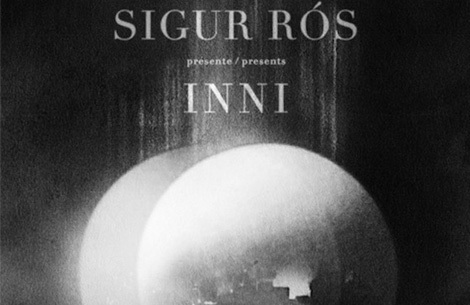Beauty in a sea of conformity
For centuries music has opened up chasms of the human mind untapped by any other vehicle of the arts. Music moves us as much as stalls us, provoking deep emotion and feeling, fierce adrenaline as well as euphoric glee.
Yet these days we can expect “club music” around every corner and cushy pop tunes even beyond those corners. The mainstream portrayed by popular media is all about flash, glam, wealth, catchy beats and clever flows. In a world where the generations of the future consider Kanye West and Ke$ha musical effigies, here arises the question “what is music coming to?”
But for listeners who dig deeper than the popular, prevailing and often conformist movement of the mainstream, they find an ocean of under-appreciated artists who have refused to acquiesce to the ways of the modern music scene.
Among the most prominent of them is Sigur Rós, a band that is intentional in their movement to move people. On the cusp of resurfacing from a brief hiatus announced back in early 2010, the globally recognized group is set to release “Inni” on November 7th. This album-DVD combo is a documentation of Sigur Rós’s live 2008 performance at Alexandra Plaza, London which is considered one of their all-time best career performances.
Vonlenska, a language of song
The most endearing thing about Sigur Rós is their ability to transcend normality while still maintaining a seriousness and truth to their work. For instance, their creation of “Vonlenska” is something rarely, if ever, done in the world of music. They have literally created their very own language. By combining musical groans and their Icelandic dialect, the group have founded an alternative system of lyric-writing translated to English as “Hopelandic.” It is literally a language of music.
Sigur Rós’s members, discography and legacy
The band, hailing from lonely, gorgeous Iceland consists of the ethereal vocalist Jón “Jónsi” Birgisson, keyboardist Kjartan “Kjarri” Sveinsson, drummer Orri Páll Dýrason and bassist Georg “Goggi” Holm. The group was forged back in 1994 by Jónsi, Georg and the then-drummer Ágúst Evar Gunnarsson who exited the band shortly after their second studio album was released. Sigur Rós, meaning “Victory Rose” and named after Jónsiʼs baby sister, won a record deal with the local label Bad Taste Records in Reykjavik, Iceland and soon their first album “Von,” meaning “Hope,” was released in 1997. The group was settling into a distinct sound that would carry on through their career; inventive instrumentals as well as Jónsiʼs pure, angelic voice wholly define them.
The groupʼs second album, “Ágaetis Byrjun,” meaning “A Good Beginning,” put Sigur Rós on the map. Originally released exclusively in Iceland, Fatcat Records picked the band up and released the album in the UK in 2000. Through word-of-mouth, positive critical reviews and countless promotions, news of the album spread from Europe and into the rest of the world. The band was waking the masses up to the potential of music.
By the later half of 2000 the group signed with MCA Records and shortly after made plans to tour North America in early 2001. The groupʼs sound was not “fresh” or “cool” but different and beautiful, something people seemed hungry for as a majority of their tour dates during that year were quickly sold out. Rarely had a foreign band had such a dramatic effect on a western audience.
In 2005 the group released “Takk…” meaning “Thanks…” This album features their popular single “Hoppipola.” Sigur Rós cannot be summed up by one track, but Hoppipola comes close. It incorporates everything that makes the band what they are: strong, ringing instrumentals that never seem repetitious (itʼs obvious that the group records each of their tracks together and at one time in-studio), and Jonsiʼs flawless vocals that encompass both a childʼs jubilation and lament.
In 2008 came “Með Suð í Eyrum Við Spilum Endalaust”, meaning “With a Buzz in Our Ears We Play Endlessly”, which had more of somber and contemporary feel to it and was the last studio album the group has released since.
“Inni” haling a hopeful return
In 2010 Sigur Rós announced an imminent hiatus would go into effect as each member
of the band, save for Jónsi, was faced with the task of raising newborn children.
Now, as “Inni” is being released there is a promising hope that the band will or already has begun to work on new songs building up to a much-welcomed end to this painful career intermission.
Why “Victory Rose” is beautiful
As a collective work, Sigur Rósʼs albums have shattered records and opened eyes. It is hard to be anything but tranquil when listening to their ballads of exuberant nonsense, which curiously are some of the most meaningful songs I have ever heard.
For die-hard fans and for myself personally, I find my time listening to Sigur Rós bordering on worshipful, not with an attitude of idolization but more of appreciation that we as human beings have been created with the capacity to make such beauty. Whether those things are in the realm of music, film, art, sports, writing, etc. the fact remains that love,grace and beauty are languages of the world. I hear God in Sigur Rósʼ music, meaning I hear truth, salvation, compassion and love in their masterful patience and purity.
Spirituality in non-Christian music
In an interview with Relevant Magazine, Jónsi explained that, “Iʼm not a religious person, but I am spiritual. Music is what keeps me alive, and it keeps me fulfilled and happy. I let everything flow through me and out of me and into my songs.”
To sum up, Sigur Rós is arguably “the Beatles” of the alternative genre and help us to feel music as much as listen to it. God can be sensed deep within bands like this, even if they do not label themselves as Christians. I look in anticipation toward the release of “Inni” and the group’s hopeful return.







